
Abeokuta: The City of Ancient Rocks and Cultural Riches
Abeokuta, the capital of Ogun State in southwestern Nigeria, is a city steeped in history and natural beauty. The name 'Abeokuta' means 'under the rock,' and this is no coincidence. The city is famous for its ancient Olumo Rock, a towering natural formation that has served as a sanctuary and stronghold for the Egba people for centuries. Climbing Olumo Rock is a must-do activity; it offers breathtaking panoramic views of the city and a fascinating glimpse into the region's history. The rock also features natural caves, shrines, and an intriguing museum at its base. Abeokuta is also a treasure trove of colonial history. The city boasts several historical landmarks, including the Centenary Hall and the grand Ake Palace, home to the Alake of Egbaland. These sites offer a unique window into the colonial past and the rich Yoruba culture. The bustling Kuto Market is another attraction where you can immerse yourself in local life, shop for traditional crafts, and sample delicious Nigerian cuisine. For those interested in culture, Abeokuta hosts several vibrant festivals throughout the year, such as the Lisabi Festival, which celebrates the heroic deeds of the legendary warrior Lisabi. The city’s rich cultural tapestry is also evident in its music, dance, and art, making it a fascinating destination for any traveler seeking an authentic Nigerian experience.
Local tips in Abeokuta
- Wear comfortable shoes for climbing Olumo Rock and take water with you.
- Visit Kuto Market early in the morning for the best shopping experience.
- Hire a local guide to get the most out of historical sites like Ake Palace and the Centenary Hall.
- Attend the Lisabi Festival if visiting in late February to early March for a unique cultural experience.
- Respect local customs and traditions, especially when visiting shrines and historical sites.
Abeokuta: The City of Ancient Rocks and Cultural Riches
Abeokuta, the capital of Ogun State in southwestern Nigeria, is a city steeped in history and natural beauty. The name 'Abeokuta' means 'under the rock,' and this is no coincidence. The city is famous for its ancient Olumo Rock, a towering natural formation that has served as a sanctuary and stronghold for the Egba people for centuries. Climbing Olumo Rock is a must-do activity; it offers breathtaking panoramic views of the city and a fascinating glimpse into the region's history. The rock also features natural caves, shrines, and an intriguing museum at its base. Abeokuta is also a treasure trove of colonial history. The city boasts several historical landmarks, including the Centenary Hall and the grand Ake Palace, home to the Alake of Egbaland. These sites offer a unique window into the colonial past and the rich Yoruba culture. The bustling Kuto Market is another attraction where you can immerse yourself in local life, shop for traditional crafts, and sample delicious Nigerian cuisine. For those interested in culture, Abeokuta hosts several vibrant festivals throughout the year, such as the Lisabi Festival, which celebrates the heroic deeds of the legendary warrior Lisabi. The city’s rich cultural tapestry is also evident in its music, dance, and art, making it a fascinating destination for any traveler seeking an authentic Nigerian experience.
When is the best time to go to Abeokuta?
Iconic landmarks you can’t miss
Park Inn by Radisson Abeokuta
Experience modern luxury and cultural richness at Park Inn by Radisson Abeokuta, your gateway to the wonders of Ogun State.
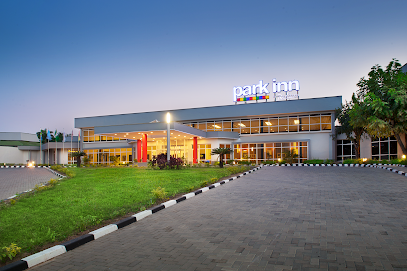
June 12 Cultural Centre Abeokuta
Explore the vibrant art scene and cultural heritage at the June 12 Cultural Centre in Abeokuta, a must-visit for art lovers and cultural enthusiasts.
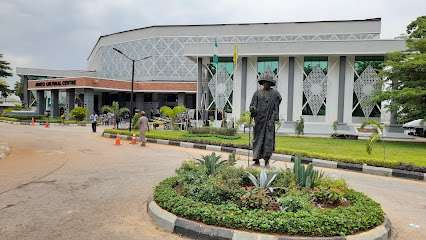
Panseke Motor Park
Experience the vibrant energy of Abeokuta at Panseke Motor Park, your gateway to exploring Ogun State's rich culture and attractions.
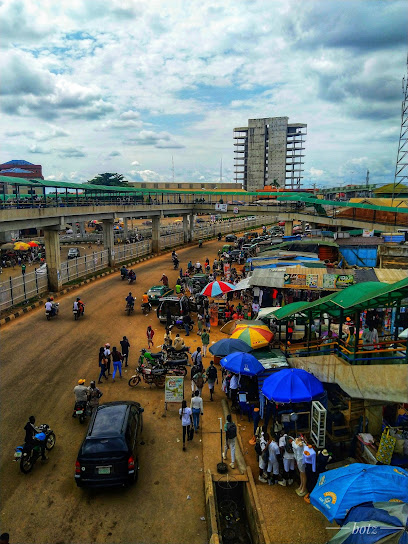
QUARRY IMPERIAL HOTELS Abeokuta
Experience unparalleled comfort at Quarry Imperial Hotels in Abeokuta, where modern luxury meets the rich culture of Ogun State.
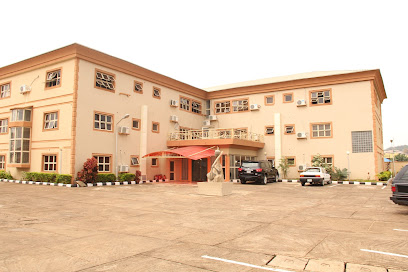
Olusegun Obasanjo Presidential Library (OOPL)
Explore Nigeria's history at the Olusegun Obasanjo Presidential Library, a cultural gem in Abeokuta featuring rich collections and serene gardens.
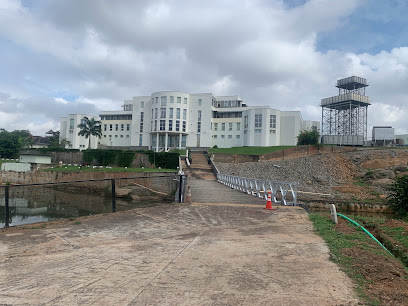
Olumo Rock Tourist Centre
Explore the stunning Olumo Rock Tourist Centre, a historical landmark in Abeokuta, offering breathtaking views and rich cultural experiences.
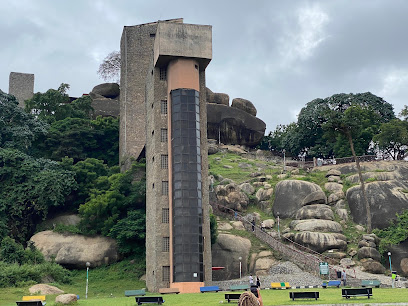
Lafenwa Motor Park, Brewery, Abeokuta
Explore the vibrant energy of Lafenwa Motor Park in Abeokuta, where local culture and transportation meet in the heart of Ogun State.
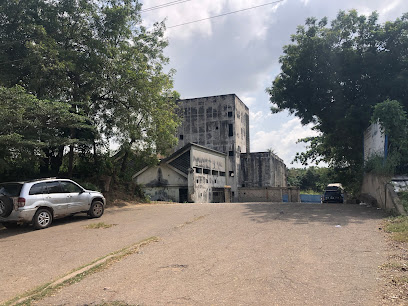
Alake Palace Ground
Discover the cultural richness and historical significance of Alake Palace Ground, a must-see landmark in Abeokuta, Ogun State, Nigeria.
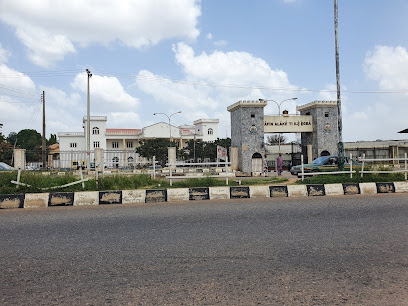
Ita-oshin Motor Park
Experience the vibrant atmosphere of Ita-oshin Motor Park, the essential transit hub connecting Abeokuta to Lagos and beyond.
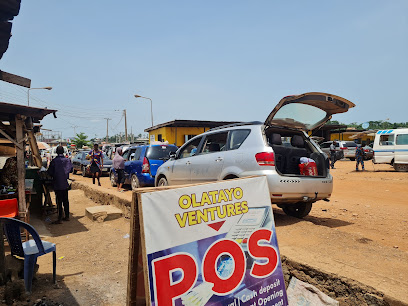
Winners Chapel Abeokuta
Discover the vibrant spiritual life at Winners Chapel Abeokuta, where faith meets community in a welcoming environment.
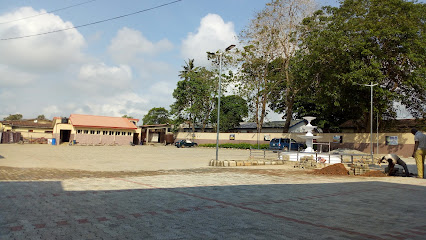
OOPL WILDLIFE PARK
Explore OOPL Wildlife Park in Abeokuta, a serene wildlife refuge offering diverse species and enriching experiences for nature lovers and families alike.
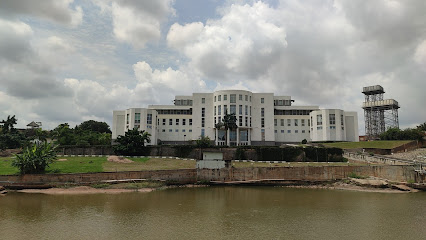
Centenary Hall- Abeokuta
Discover the rich history and cultural significance of Centenary Hall in Abeokuta, a must-visit landmark for every traveler.
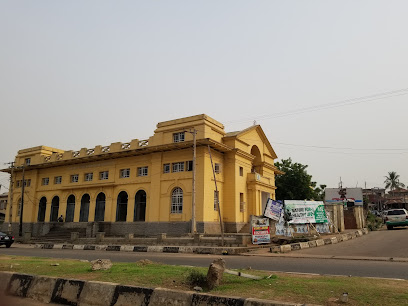
Professor Wole Soyinka Train Station
Explore the Professor Wole Soyinka Train Station in Abeokuta, a cultural landmark connecting travelers to the heart of Nigeria's history and vibrant communities.
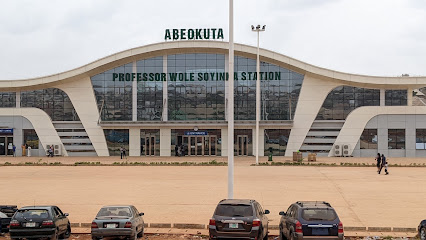
Oke aregba
Experience authentic Nigerian culture and community at Oke Aregba, the vibrant hub of Gbaguru in Abeokuta.

Abeokuta Golf Club
Discover the serene beauty and challenging play at Abeokuta Golf Club, the premier golfing destination in Ogun State for tourists and enthusiasts alike.
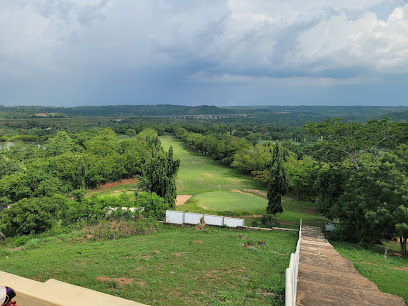
Unmissable attractions to see
June 12 Cultural Centre Abeokuta
Discover the vibrant artistic heritage of Abeokuta at the June 12 Cultural Centre, where culture and creativity converge.
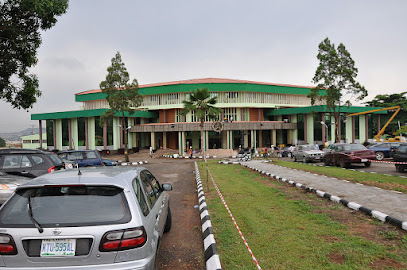
Panseke Motor Park
Discover the charm of Panseke Motor Park in Abeokuta - a perfect blend of relaxation, local culture, and convenience for every traveler.
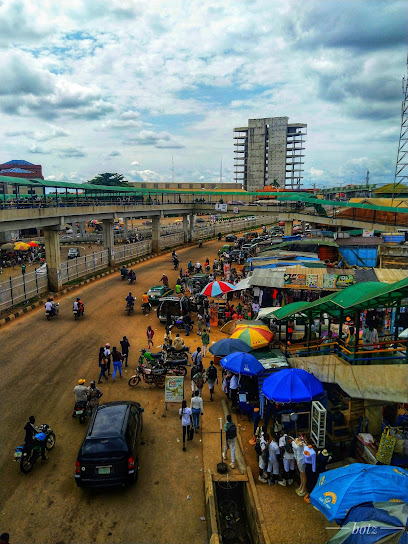
Olumo Rock Tourist Centre
Explore the iconic Olumo Rock Tourist Centre in Abeokuta, a breathtaking historical landmark that offers stunning views and rich cultural experiences.
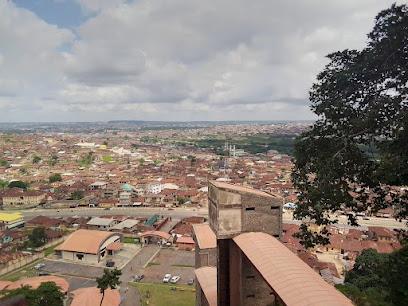
Olusegun Obasanjo Presidential Library (OOPL)
Discover the rich heritage of Nigeria at the Olusegun Obasanjo Presidential Library, a cultural landmark in Abeokuta showcasing history, literature, and art.
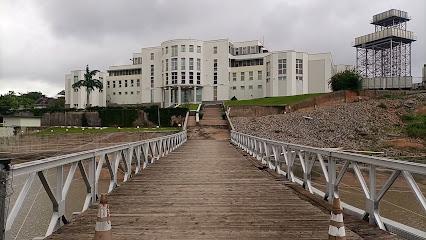
Funaab Zoo Park
Discover the enchanting Funaab Zoo Park in Abeokuta, a perfect blend of wildlife encounters and natural beauty for tourists and families.
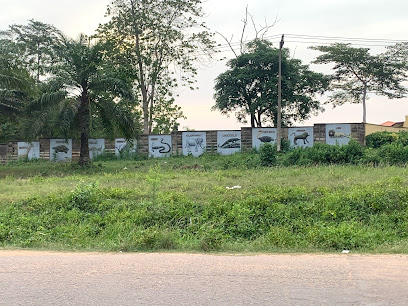
Alake Palace Ground
Experience the rich cultural heritage and majestic architecture of Alake's Palace in Abeokuta, a must-visit historical landmark for every traveler.
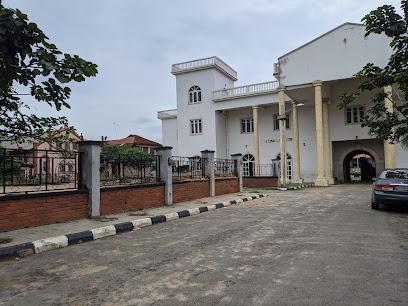
Lafenwa Motor Park, Brewery, Abeokuta
Experience the heart of Abeokuta at Lafenwa Motor Park, a bustling hub of transport, local culture, and delicious street food.
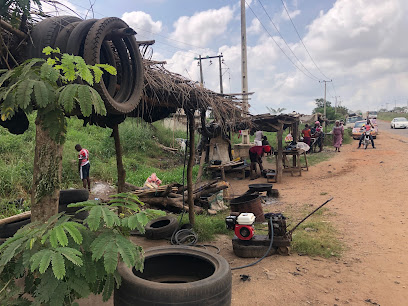
Alake Palace Ground
Discover the historical and cultural significance of Alake Palace Ground, a royal landmark in Abeokuta, Ogun State, perfect for cultural enthusiasts and history lovers.
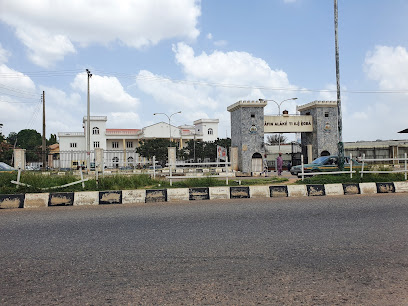
Oba Olawale Odeleye Green Park Abeokuta
Discover tranquility at Oba Olawale Odeleye Green Park, a serene memorial park in Abeokuta, perfect for relaxation and reflection amidst lush greenery.
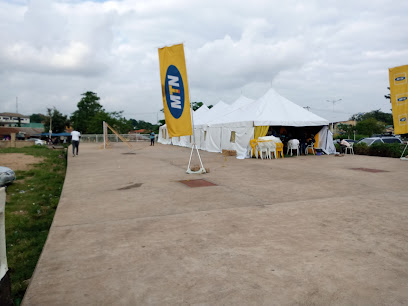
OOPL WILDLIFE PARK
Explore OOPL Wildlife Park: A serene refuge for diverse wildlife nestled within the Olusegun Obasanjo Presidential Library in Abeokuta, Nigeria.
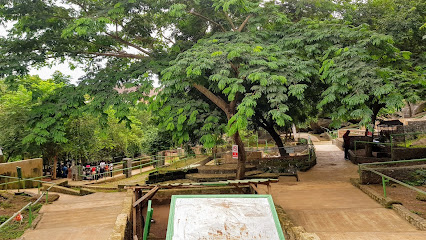
The Kuti Heritage Museum
Explore The Kuti Heritage Museum in Abeokuta for a captivating journey through Nigeria's rich history and cultural heritage.
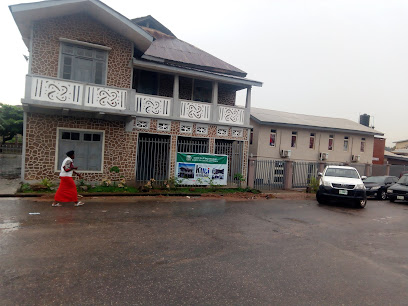
Olowu Palace
Explore the Olowu Palace, a historical museum showcasing the rich cultural heritage and architectural beauty of the Yoruba people in Abeokuta, Ogun State.
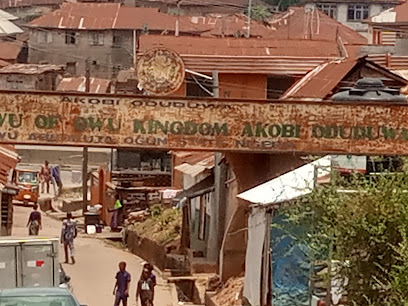
Independent Park
Explore Independent Park in Abeokuta for a tranquil retreat surrounded by lush greenery and a vibrant local culture, perfect for relaxation and leisure.
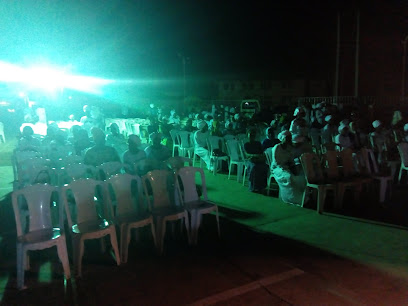
Arakanga Nature Reserve
Experience the tranquility and diverse wildlife of Arakanga Nature Reserve in Abeokuta, Ogun State, a must-visit for nature enthusiasts.
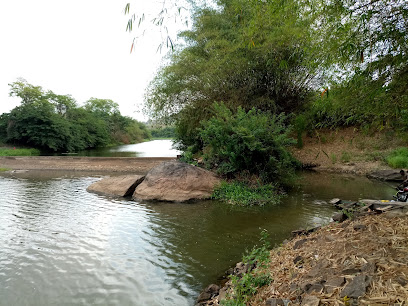
Mobas Garden
Explore Mobas Garden, a serene escape in Abeokuta, where nature thrives and tranquility reigns for an unforgettable experience.
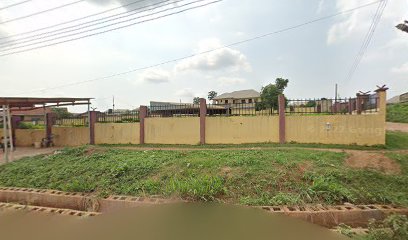
Essential places to dine
Royal Mandarin Club/Chinese Restaurant
Experience authentic Chinese cuisine in Abeokuta at Royal Mandarin Club - where taste meets tradition in every dish.
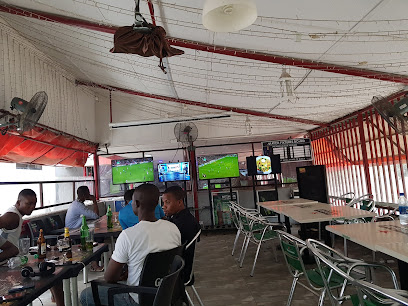
WokCity Restaurant Ibara Abeokuta
Discover the culinary delights at WokCity Restaurant in Abeokuta - where local flavors meet fast food favorites!
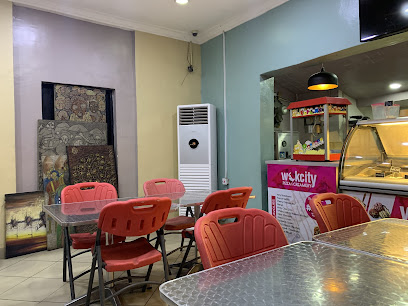
Madojutimi Restaurant
Discover authentic Nigerian cuisine at Madojutimi Restaurant in Abeokuta—an unforgettable culinary journey awaits you.
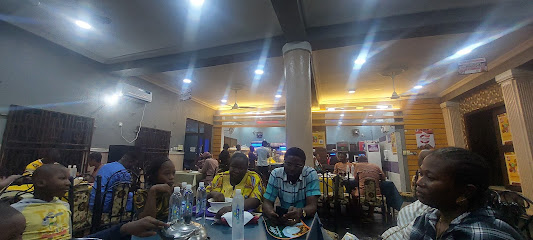
Big Treat Abeokuta
Experience authentic Nigerian cuisine at Big Treat Abeokuta – where local flavors meet vibrant dining.
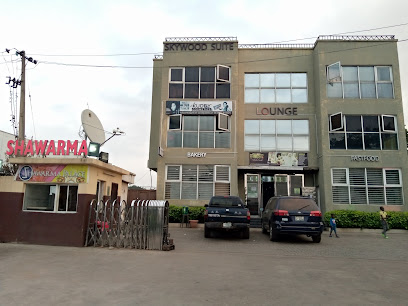
Ini's Hotpot Calabar Kitchen
Experience authentic Nigerian cuisine at Ini's Hotpot Calabar Kitchen in Abeokuta—where vibrant flavors meet warm hospitality.
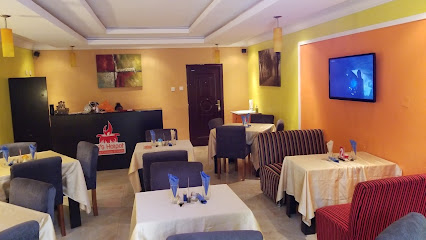
Tamberma Abeokuta
Discover authentic Nigerian flavors at Tamberma Abeokuta – where culinary excellence meets cultural richness in Ogun State.
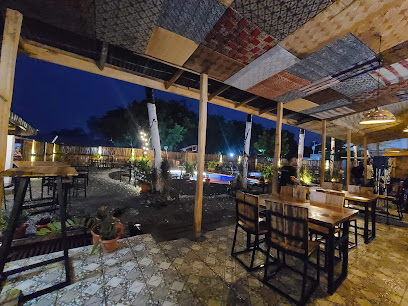
The Mayfair Executive
Experience fine dining at The Mayfair Executive in Abeokuta - where local flavors meet culinary excellence in an elegant setting.
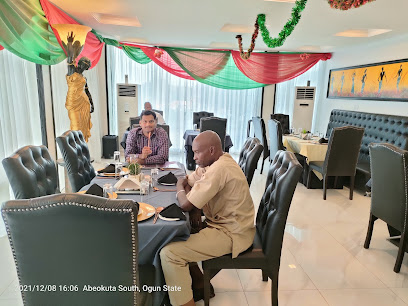
Mr. Bigg's - Abeokuta
Savor delicious fast food and breakfast delights at Mr. Bigg's in Abeokuta, where local flavors meet comfort dining.
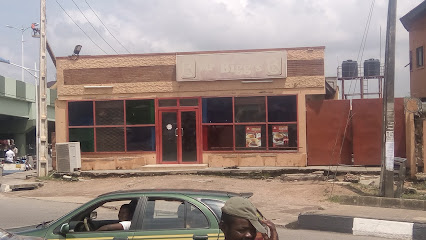
Surulere Food Canteen
Discover authentic Nigerian breakfast at Surulere Food Canteen in Ogun State - a culinary gem blending tradition with modern taste.
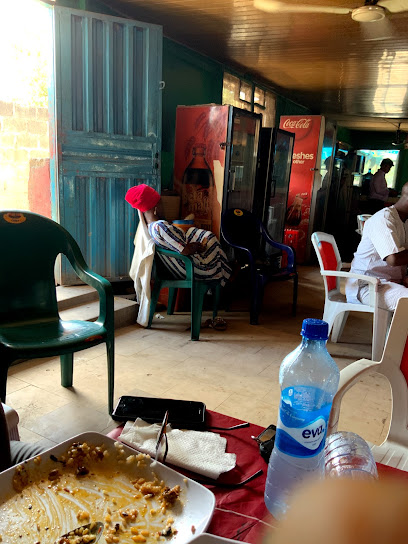
Diamond Dumpling
Discover unique flavors at Diamond Dumpling - where traditional Nigerian cuisine meets modern culinary creativity in Abeokuta.
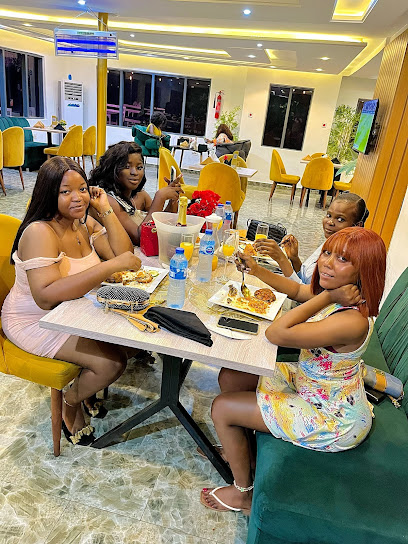
Country Kitchen
Experience the rich culinary traditions of Nigeria at Country Kitchen in Abeokuta – where flavor meets hospitality.
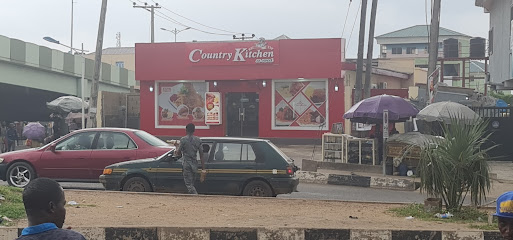
P&P fast food and restaurant
Experience delightful breakfasts at P&P Fast Food and Restaurant in Abeokuta – where local flavors meet international favorites.
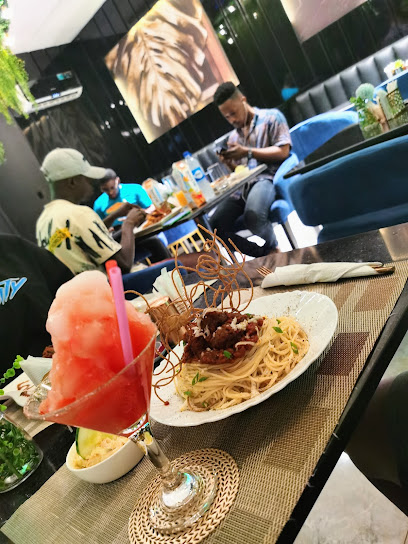
Chicken Republic - Fatgbems Abeokuta
Discover the taste of Nigeria at Chicken Republic in Abeokuta – where fast food meets local flavor.
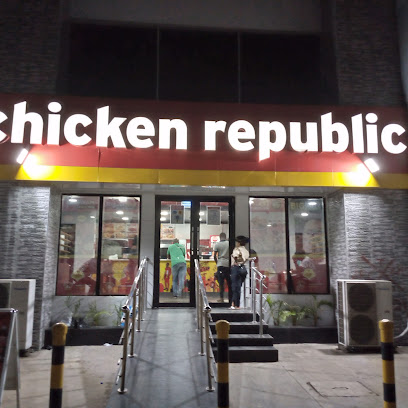
NÒKASÍI Foods and Confectioneries
Discover the flavors of Nigeria at NÒKASÍI Foods and Confectioneries – where local meets international in a cozy dining atmosphere.
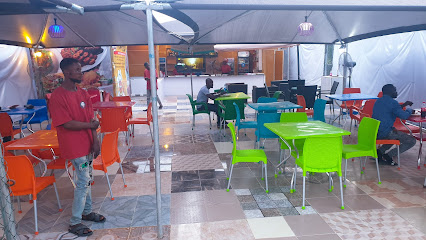
Dalish Restaurant
Experience the vibrant flavors of Nigerian cuisine at Dalish Restaurant in Abeokuta – where every dish tells a story.
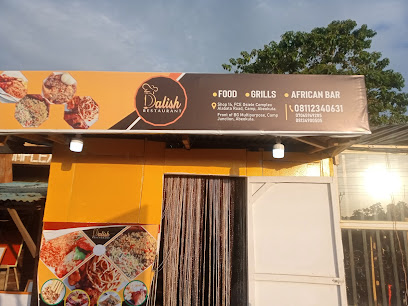
Markets, malls and hidden boutiques
Modu Shopping Mall, Abeokuta
Experience shopping, dining, and vibrant local culture at Modu Shopping Mall, the ultimate retail destination in Abeokuta.
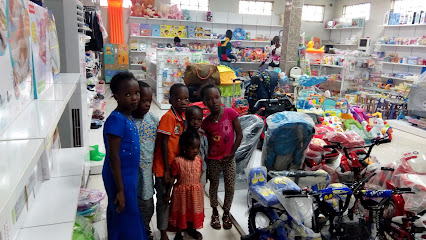
Rojabs Babies And Children Store
Discover the ultimate shopping experience for babies and children at Rojabs, Abeokuta's beloved gift shop for families.
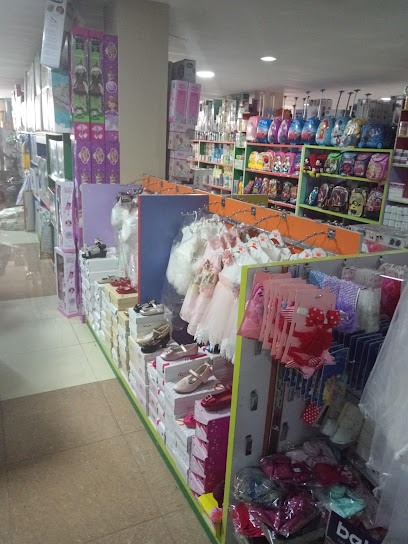
Jesse and Jessica Stores
Discover a vibrant Chinese supermarket in Abeokuta, Ogun State, offering authentic ingredients, snacks, and cultural experiences.
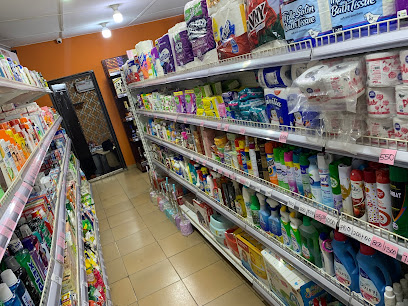
Moyinsworld party shop
Explore unique souvenirs and local crafts at Moyinsworld Party Shop in Abeokuta, a treasure trove for memorable keepsakes.

Shop
Experience the colorful shopping landscape of Abeokuta, where local craftsmanship meets contemporary flair in a vibrant atmosphere.
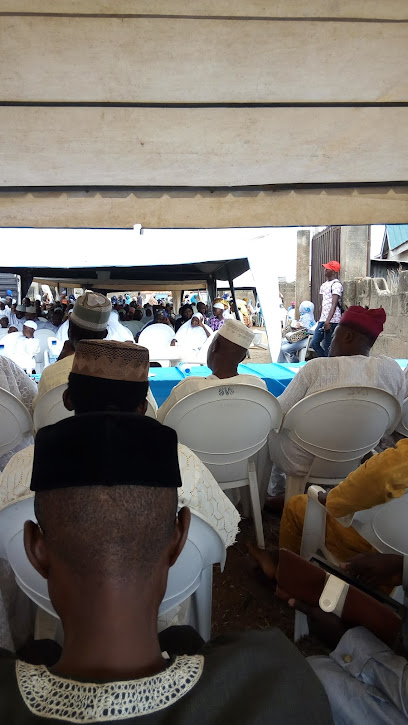
BOULUS MART
Explore the colorful aisles of Boulus Mart, a grocery store in Abeokuta offering local and international products for all your culinary needs.
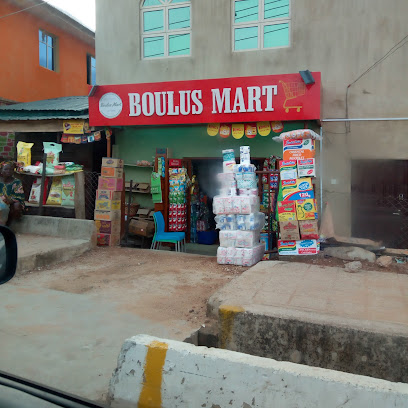
Fortune’s StoreNg
Explore Fortune’s StoreNg in Abeokuta for trendy men's and women's clothing that captures the essence of Nigerian fashion culture.
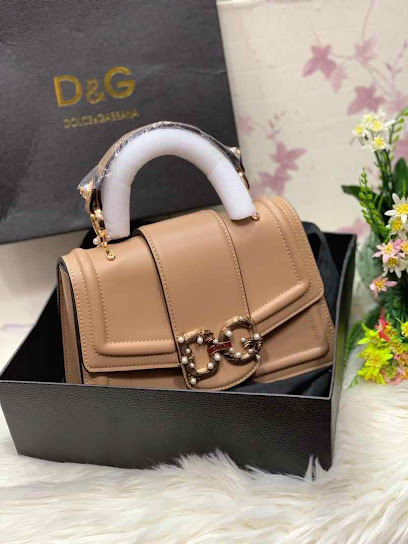
Busy Fingers World of creativity
Experience the vibrant culture of Abeokuta at Busy Fingers World of Creativity, a unique supermarket filled with local products and artisanal treasures.
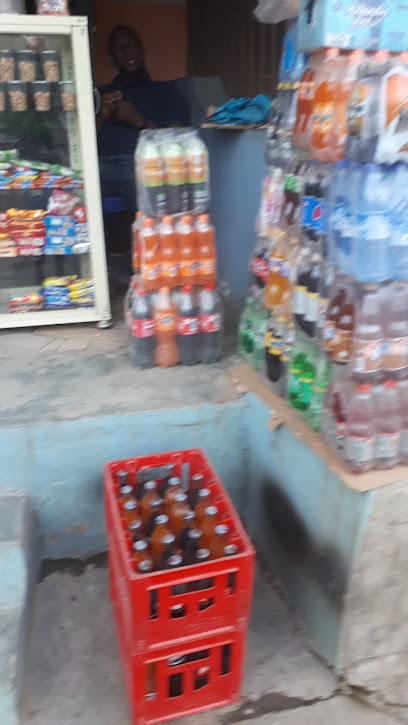
Pick'riteXclusive Clothings.
Explore stylish clothing for men, women, and children at Pick'riteXclusive Clothings in Abeokuta's vibrant shopping district.
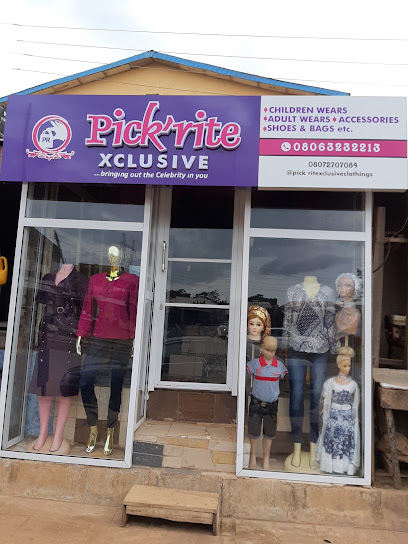
Enquire World
Explore the beauty of Ogun State at Enquire World, where quality cosmetics meet exceptional service in a vibrant boutique setting.
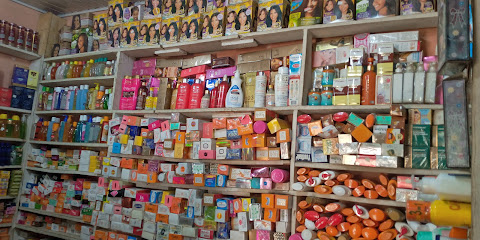
Grandeur Gifts and Souvenirs
Explore a charming gift shop in Abeokuta, offering unique Nigerian souvenirs and treasures, perfect for capturing the essence of your travels.
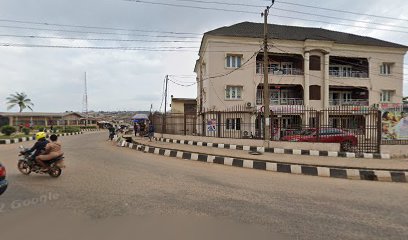
MICHOLINE
Explore authentic Nigerian fashion at Micholine, a clothing store in Abeokuta offering unique styles and quality attire for every taste.

Unique Kitchen and Gift Shop
Explore Abeokuta’s Unique Kitchen and Gift Shop for an authentic taste of local crafts and delicacies that celebrate Nigerian culture.
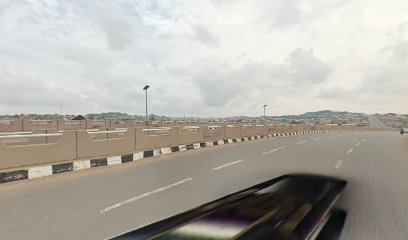
Unique Mall
Explore Unique Mall, a vibrant women's clothing store offering trendy apparel and accessories for every occasion in a welcoming shopping environment.

Vintage 'N' More Stores
Explore the unique blend of vintage and contemporary fashion at Vintage 'N' More Stores in Abeokuta, Ogun State, Nigeria.
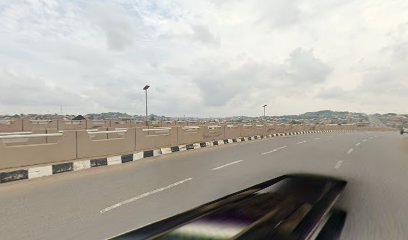
Essential bars & hidden hideouts
Orange Lounge & Bar
Experience vibrant nightlife at the Orange Lounge & Bar in Abeokuta, where cozy ambiance meets a diverse drink selection for an unforgettable evening.
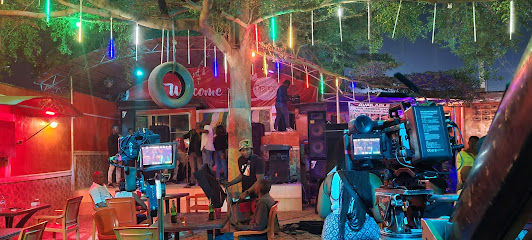
LVC LOUNGE Bar and Games
Unwind at LVC Lounge Bar and Games, where delicious grill cuisine meets entertaining games in the heart of Abeokuta.
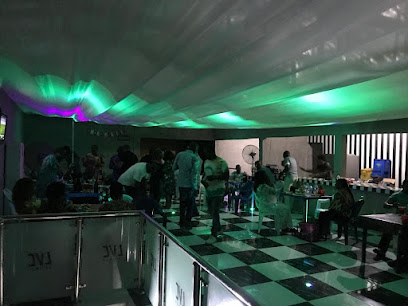
XO RestoBar
Experience the vibrant nightlife at XO RestoBar in Abeokuta, where delicious barbecue, refreshing drinks, and a lively atmosphere await.
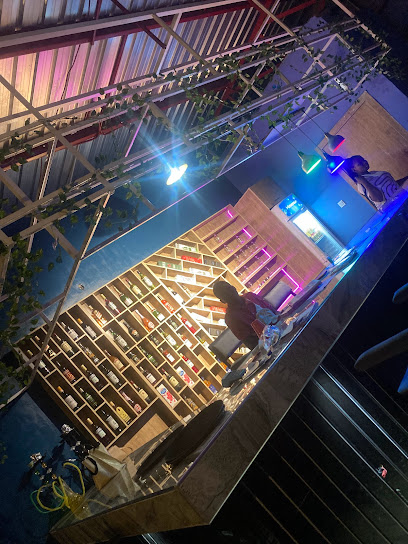
Vybe Lounge
Discover the vibrant nightlife at Vybe Lounge in Abeokuta, where great drinks and a lively atmosphere await.

Bar 83 and Lounge
Discover the lively ambiance of Bar 83 and Lounge in Abeokuta, where great drinks and vibrant entertainment await you.
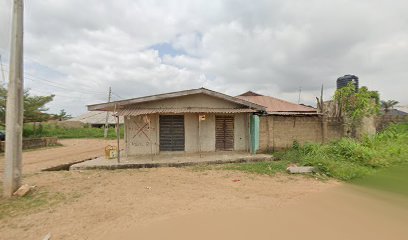
Range Lounge And Bar
Discover the lively ambiance at Range Lounge And Bar in Abeokuta, where local flavors and vibrant nightlife come together for an unforgettable experience.

Sexy J Cool Spot
Experience the vibrant nightlife of Abeokuta at Sexy J Cool Spot, where great drinks and an energetic atmosphere come together for an unforgettable evening.
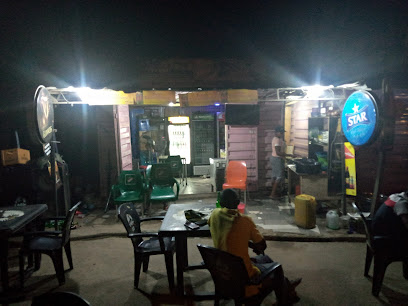
Master's place bar
Discover the vibrant culinary scene at Master's Place Bar in Abeokuta, where grilled delights and a lively atmosphere await every visitor.
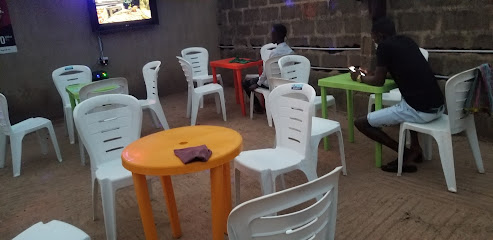
Empire Bar & Lounge
Discover the lively spirit of Abeokuta at Empire Bar & Lounge, where vibrant atmosphere meets delightful drinks for an unforgettable night out.

BarCode lounge Abk
Discover the vibrant nightlife at BarCode Lounge in Abeokuta, where music, drinks, and great company come together for an unforgettable experience.
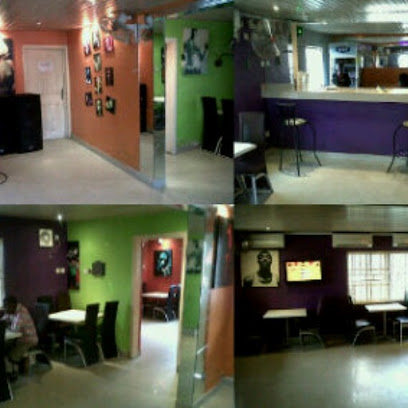
The Royalty Hall
Experience the vibrant nightlife and local culture at The Royalty Hall, a lively bar in Abeokuta, Ogun State, perfect for tourists and locals alike.
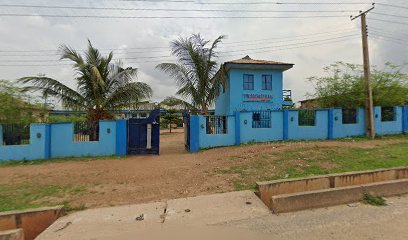
Ultimate Cool Spot
Experience the vibrant atmosphere and delicious drinks at Ultimate Cool Spot, a top bar in Abeokuta, Ogun State.
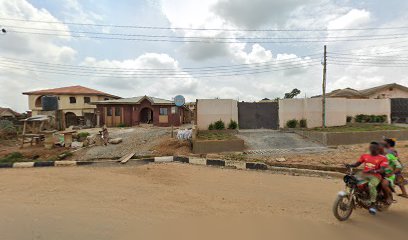
Horlycrown Bar
Discover the lively atmosphere of Horlycrown Bar in Abeokuta, where local flavors and vibrant nightlife come together for an unforgettable experience.
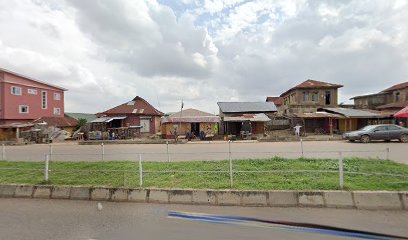
Platinum Bar And Garden
Explore the vibrant nightlife at Platinum Bar And Garden in Abeokuta, where refreshing drinks and a serene garden setting await.
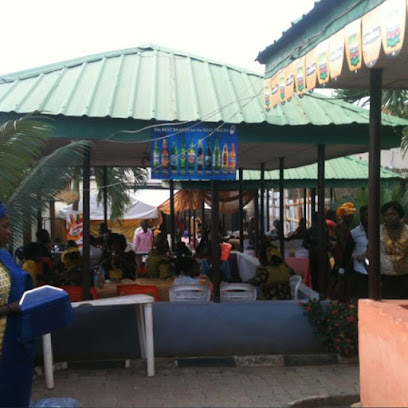
Local Phrases
-
- HelloBawo
[Ba-wo] - GoodbyeOdabo
[O-da-bo] - YesBẹẹni
[Be-ni] - NoBẹẹkọ
[Be-ko] - Please/You're welcomeẸ ṣe
[E-she] - Thank youẸ se
[E-she] - Excuse me/SorryE ṣe
[E-she] - How are you?Bawo ni?
[Ba-wo ni] - Fine. And you?Daadaa. Eyi ni?
[Da-da. E-yi ni] - Do you speak English?Ṣe o fẹ́ẹ́ràn lati so ede Gẹẹsi?
[She o fe-ran la-ti so e-de Gee-si] - I don't understandKò ní rẹ́
[Ko ni re]
- HelloBawo
-
- I'd like to see the menu, pleaseMo fẹ́ rọ́ awọn ọbẹ, ẹ ṣe
[Mo fe ro awon o-be, E-she] - I don't eat meatMi kò mọ́ ẹran
[Mi ko mo e-ran] - Cheers!Gbogbo ẹ̀ni n lẹ wá
[Gbo-gbo e-ni n le wa] - I would like to pay, pleaseMo fẹ́ fi ẹ́ lọ, ẹ ṣe
[Mo fe fi e lo, E-she]
- I'd like to see the menu, pleaseMo fẹ́ rọ́ awọn ọbẹ, ẹ ṣe
-
- Help!Ẹ fẹ́ran!
[E fe-ran] - Go away!Ṣẹ lai wá!
[She lai wa] - Call the Police!Wọlé orílẹ̀-èdè!
[Wo-le ori-le-e-de] - Call a doctor!Wọlé bàbá ìwẹ̀!
[Wo-le ba-ba i-we] - I'm lostMo fé jẹ́ lọsí
[Mo fe je lo-si] - I'm illMo bẹ̀rẹ́
[Mo be-re]
- Help!Ẹ fẹ́ran!
-
- I'd like to buy...Mo fẹ́ rọ́...
[Mo fe ro...] - I'm just lookingMo ní ìjàpọ̀
[Mo ni i-ja-po] - How much is it?Báwo ni ọkan ní?
[Ba-wo ni o-kan ni] - That's too expensiveNáà ti pọ̀
[Na ti po] - Can you lower the price?Ṣe o lọwọ owo?
[She o lo-wo o-wo]
- I'd like to buy...Mo fẹ́ rọ́...
-
- What time is it?Kini akoko ní?
[Ki-ni a-ko-ko ni] - It's one o'clockKọọkan ní wọ̀n
[Ko-kan ni won] - Half past (10)Kọọkan ti (mẹ́wàá)
[Ko-kan ti (me-wa-a)] - MorningỌ̀jọ́ aarọ
[O-jo a-ro] - AfternoonỌ̀jọ́ ọ̀sán
[O-jo o-san] - EveningỌ̀jọ́ ọ̀sì
[O-jo o-si] - YesterdayỌ̀na kẹ́dí
[O-na ke-di] - TodayỌ̀na
[O-na] - TomorrowỌ̀na mẹsan
[O-na me-san] - 1Ọkan
[O-kan] - 2Meji
[Me-ji] - 3Mẹta
[Me-ta] - 4Mẹrin
[Me-rin] - 5Marun
[Ma-run] - 6Mefa
[Me-fa] - 7Meje
[Me-je] - 8Mejo
[Me-jo] - 9Mesan
[Me-san] - 10Mewa
[Me-wa]
- What time is it?Kini akoko ní?
-
- Where's a/the...?Níbẹ̀ nì...
[Ni-be ni] - What's the address?Kíni àwọn adirẹsì?
[Ki-ni a-won a-di-re-si] - Can you show me (on the map)?Ṣe o fẹ́ gbọ́ mí (lèẹkọọ)?
[She o fe go mi (le-ko-ko)] - When's the next (bus)?Níbẹ̀ nì ó yẹ̀wọ pẹ̀lú...
[Ni-be ni o ye-wo pe-lu] - A ticket (to ....)Ẹ̀kọ tẹ̀lẹ (de ....)
[E-ko te-le (de)]
- Where's a/the...?Níbẹ̀ nì...
History of Abeokuta
-
Abeokuta, meaning 'under the rock' in Yoruba, was founded in 1830 by Sodeke, a hunter and leader of the Egba refugees who fled from the Oyo Empire. The city was established under the protection of the Olumo Rock, which served as a natural fortress against invasions.
-
Olumo Rock stands as a symbol of Abeokuta and a historical monument. This ancient rock formation provided a safe haven for the Egba people during inter-tribal wars. The rock is not only a geographical feature but also a cultural landmark, representing the resilience and unity of the Egba people.
-
In 1893, a pivotal moment in Abeokuta's history occurred when British colonial forces invaded the city. To prevent further conflict, the Egba leaders signed a treaty with the British, which resulted in the city becoming a British protectorate. This agreement marked the beginning of significant political and social changes in the region.
-
Abeokuta played a significant role during the Yoruba Wars in the 19th century. The city was a focal point of resistance against the Dahomey and Ibadan invasions. The Egba warriors, fortified by their strategic location and the Olumo Rock, managed to defend their city successfully on many occasions.
-
Christian missionaries arrived in Abeokuta in the mid-19th century, leading to the establishment of schools and churches. Notable among them was Henry Townsend, who founded the first newspaper in Nigeria, 'Iwe Irohin,' in 1859. The advent of Christianity and Western education played a crucial role in the cultural and intellectual development of Abeokuta.
-
The construction of the Lagos-Abeokuta railway in the early 20th century was a significant milestone in the city's history. This railway line enhanced trade and movement between Abeokuta and Lagos, fostering economic growth and integration with other parts of Nigeria.
-
In 1898, the Egba United Government was formed as a semi-autonomous administration under British oversight. This government was one of the earliest forms of self-governance in Nigeria, providing a framework for political organization and local administration in Abeokuta.
-
Abeokuta is renowned for its rich cultural heritage, manifested in various festivals and traditions. The Lisabi Festival, honoring the legendary warrior Lisabi, is celebrated annually with vibrant music, dance, and community activities. These cultural festivities reflect the deep-rooted traditions and communal spirit of the Egba people.
-
Today, Abeokuta is a bustling city that blends historical heritage with modern development. It serves as the capital of Ogun State and is a center for commerce, education, and culture. The city's historical landmarks, such as the Centenary Hall and the Olumo Rock, continue to attract visitors and preserve the legacy of Abeokuta's storied past.
Abeokuta Essentials
-
Abeokuta is accessible via several modes of transportation. The nearest international airport is Murtala Muhammed International Airport in Lagos, approximately 100 kilometers away. From Lagos, you can take a bus, taxi, or hire a private car to Abeokuta. The journey typically takes around 1.5 to 2 hours by road. Abeokuta is also connected by rail, with train services available from Lagos and other major cities in Nigeria.
-
Within Abeokuta, local transportation options include taxis, motorcycle taxis (okadas), and minibuses (danfos). Taxis are relatively affordable and can be hailed on the street or booked through ride-hailing apps. Okadas are a quicker but less safe option for short trips. Danfos operate on fixed routes and are the most economical choice for getting around the city. Car rentals are also available for those who prefer to explore at their own pace.
-
The official currency in Nigeria is the Nigerian Naira (NGN). Credit and debit cards are accepted at larger hotels, restaurants, and shops, but cash is still widely used, especially in smaller establishments and markets. ATMs are available in Abeokuta, but it's advisable to carry some cash for convenience. Note that some ATMs may have withdrawal limits or might not accept international cards.
-
Abeokuta is generally considered safe for tourists, but it's important to take standard precautions. Avoid carrying large sums of cash or wearing flashy jewelry. Be cautious when using public transportation, and avoid traveling alone at night. Some areas to exercise extra caution include Sapon, Lafenwa, and Ibara, which can have higher crime rates. Always stay aware of your surroundings and use reputable transportation options.
-
In case of emergency, dial 112 for immediate assistance. Abeokuta has several hospitals and clinics, including the Federal Medical Centre and Sacred Heart Hospital, which offer emergency medical services. It's advisable to have travel insurance that covers medical emergencies. For minor health issues, there are numerous pharmacies where you can purchase over-the-counter medications.
-
Fashion: Do dress modestly, especially when visiting religious or traditional sites. Avoid wearing overly revealing clothing. Religion: Do respect local customs and traditions. When visiting mosques or churches, dress conservatively and remove your shoes if required. Public Transport: Do be patient and respectful in crowded settings. Don’t argue with drivers or other passengers. Greetings: Do greet people with a handshake and a smile. Using 'sir' or 'ma' is a sign of respect. Eating & Drinking: Do try local delicacies and accept food offerings graciously. Don't eat in public places during fasting periods, such as Ramadan.
-
To experience Abeokuta like a local, visit the Adire Market, where you can buy traditional tie-dye fabrics and other crafts. Engage with locals and learn about the rich history of the area, including the famous Olumo Rock, which offers stunning views of the city. Don't miss the Ake Palace, a historical site with deep cultural significance. For a unique experience, try the local cuisine, such as Ofada rice and Ayamase sauce, at local eateries.
Trending Landmark in Abeokuta
-
Park Inn by Radisson Abeokuta
-
June 12 Cultural Centre Abeokuta
-
Panseke Motor Park
-
QUARRY IMPERIAL HOTELS Abeokuta
-
Olusegun Obasanjo Presidential Library (OOPL)
-
Olumo Rock Tourist Centre
-
Lafenwa Motor Park, Brewery, Abeokuta
-
Alake Palace Ground
-
Ita-oshin Motor Park
-
Winners Chapel Abeokuta
-
OOPL WILDLIFE PARK
-
Centenary Hall- Abeokuta
-
Professor Wole Soyinka Train Station
-
Oke aregba
-
Abeokuta Golf Club
Nearby Cities to Abeokuta
-
Things To Do in Lagos
-
Things To Do in Ibadan
-
Things To Do in Porto-Novo
-
Things To Do in Cotonou
-
Things To Do in Ouidah
-
Things To Do in Lokossa
-
Things To Do in Aneho
-
Things To Do in Notse
-
Things To Do in Atakpamé
-
Things To Do in Lomé
-
Things To Do in Benin City
-
Things To Do in Kpalimé
-
Things To Do in Warri
-
Things To Do in Ho
-
Things To Do in Asaba








